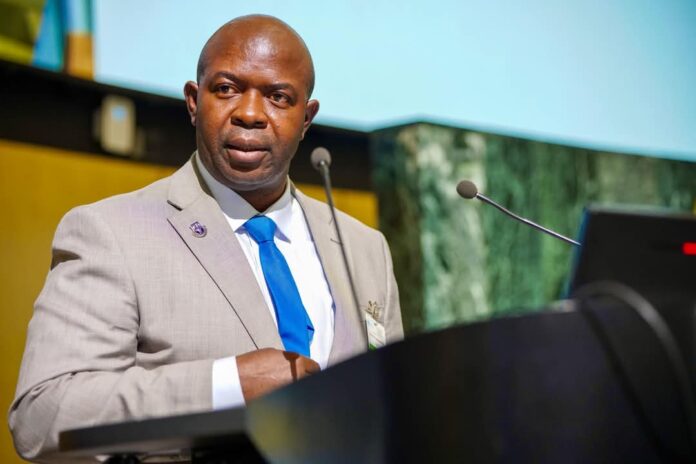MONROVIA – Hon. Richard Fatorma Ngafuan, head of the Liberia Institute of Statistics and Geo-Information Services (LISGIS), has kindled a firestorm over claims of nepotism within the government of President Joseph Boakai. The letter, which was sent to the Civil Service Agency (CSA) Director-General, Josiah Joekai, on January 2, 2024, formally requests the transfer of his wife, Joyce Nyenpan Ngafuan, from her post at LISGIS to another public sector institution. While framed as a proactive step to avoid perceived conflicts of interest, the request has instead fueled mounting concerns about favoritism and ethical lapses in the administration.
In his correspondence, Richard Ngafuan explained that his wife had sought to transfer from her role as head of the External Trade Unit at LISGIS back in February 2024. The transfer request was made to address potential conflicts of interest, given the couple’s shared involvement in the same agency. Richard stressed that such a move was essential for maintaining transparency and preserving public trust in LISGIS, which plays a crucial role in the Boakai administration’s governance agenda. However, the call for action has become tangled in allegations of nepotism that could potentially harm the administration’s credibility.
Richard Ngafuan’s attempt to preemptively address ethical concerns has failed to dispel growing criticism, particularly from political analysts like Matthew Nyanplu. Nyanplu pointed to the Code of Conduct for public officials, which forbids family members from holding positions in the same government branch, arguing that this practice undermines the public’s faith in government transparency. Nyanplu further accused the Boakai administration of fostering a culture of favoritism that is at odds with its stated commitment to reform.
The controversy extends beyond LISGIS’s leadership to the broader involvement of the Ngafuan family in the government. Nyanplu has highlighted the role of Augustine Kpehe Ngafuan, the Minister of Finance and Development Planning, who is also the chairman of the LISGIS Board. Critics contend that this dual involvement constitutes a conflict of interest, with both brothers holding influential positions within the same government framework. Such close ties between family members, they argue, further fuel concerns about the concentration of power within a single family, undermining the principles of accountability and fairness.
Adding to the allegations, Richard Ngafuan is accused of facilitating his wife’s appointment to a key position at LISGIS. This action has prompted accusations of favoritism, with critics asserting that it not only breaches ethical guidelines but also reflects systemic issues within the Boakai administration. For many, this apparent disregard for impartiality raises serious questions about the administration’s commitment to good governance.
The LISGIS scandal threatens to erode public confidence in an institution central to the administration’s reform agenda. LISGIS is tasked with producing critical data for national policy, and its credibility is vital for shaping informed decisions. However, the ongoing controversy over nepotism casts a shadow over its work, with many questioning whether the institution can function impartially under such allegations.
Despite Richard Ngafuan’s call for corrective measures, many view his actions as insufficient. The delay in addressing his wife’s transfer request has heightened concerns, and calls for an independent investigation into the workings of LISGIS have grown louder. The issue has become emblematic of broader governance challenges faced by the Boakai administration, raising doubts about its ability to implement the reforms it promised.
For President Boakai, the LISGIS issue represents a pivotal moment in his administration’s pursuit of reform and transparency. Elected on a platform that promised ethical governance and the dismantling of corrupt practices, the current nepotism scandal threatens to unravel much of the administration’s progress. As critics have pointed out, these ongoing issues are symptomatic of deeper flaws in the system that the government has yet to address effectively.







